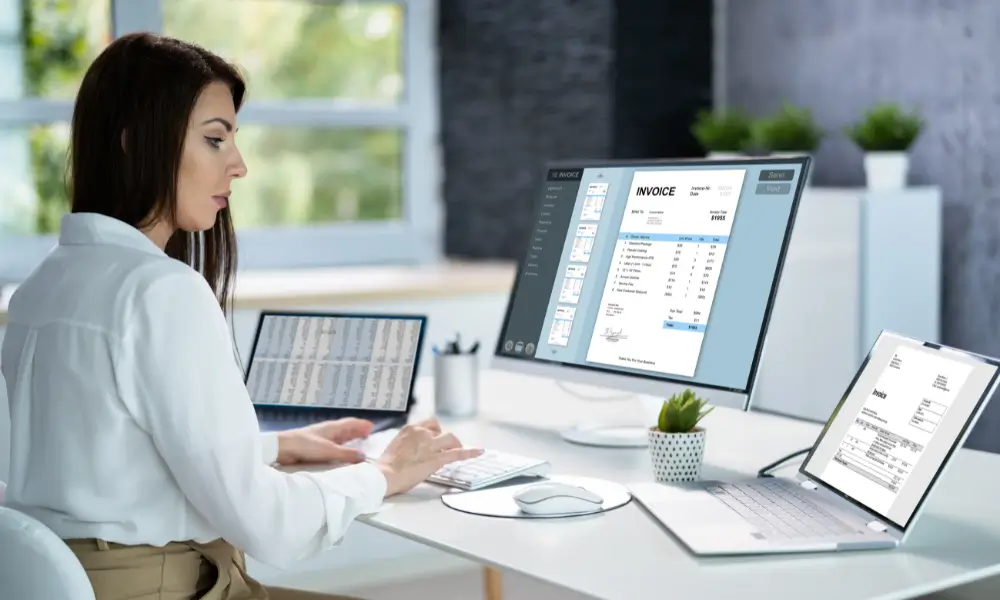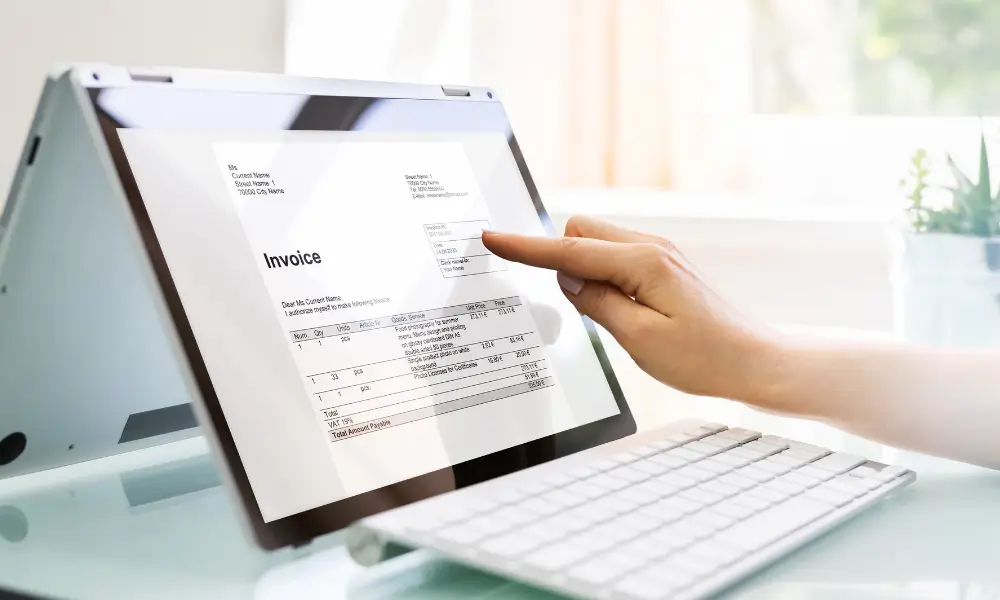Written by Daniel Cotter
Ward Goodman
April 15, 2025
Electronic invoicing, or e-invoicing, is set to revolutionise the way businesses handle transactions by enabling the digital exchange of invoice information directly between buyers and suppliers. Recognising its potential to enhance efficiency and reduce administrative burdens, the UK government has initiated a public consultation to promote the adoption of e-invoicing across the country.
What Exactly is E-Invoicing?
E-invoicing refers to the electronic exchange of invoice data between businesses and government entities in a structured format. Unlike traditional paper invoices or PDFs sent via email, e-invoices are generated, transmitted, and processed digitally without manual intervention. This process improves accuracy, reduces administrative costs, and speeds up payment cycles.
The core principle of e-invoicing is automation. By integrating invoicing software with accounting and tax systems, businesses can maintain compliance with regulatory requirements while reducing the risk of errors and fraud. Many countries, including the UK, are moving towards mandatory e-invoicing to enhance transparency and streamline financial transactions.
E-invoicing is already widely used in sectors such as retail, manufacturing, and government procurement. It allows businesses to manage their cash flow more effectively by ensuring timely payments and reducing disputes caused by invoice discrepancies.
Government Consultation on E-Invoicing
On 13 February 2025, HM Revenue & Customs (HMRC) and the Department for Business and Trade (DBT) launched a 12-week consultation aimed at standardising and increasing the use of e-invoicing among UK businesses and the public sector. This initiative seeks to gather insights on how e-invoicing can streamline processes, reduce errors, and improve VAT return accuracy. The consultation period is open until 7 May 2025, and businesses are encouraged to participate by submitting their views to help shape the future of invoicing practices in the UK. More details can be found in the official government press release: Government Sets Out Plans for E-Invoicing Overhaul.
What the Government Hopes to Achieve
The main objective of the consultation is to explore the feasibility of a more widespread and standardised e-invoicing framework, reducing reliance on traditional paper invoices. By promoting e-invoicing, the government aims to:
- Enhance Efficiency: Streamline invoicing processes, cutting down administrative burdens for businesses and public sector organisations.
- Reduce Tax Evasion and Fraud: Improve the accuracy and traceability of financial transactions, assisting HMRC in tackling VAT fraud and tax evasion.
- Boost Productivity: Ensure businesses, particularly SMEs, benefit from improved cash flow through faster invoice processing and payments.
- Support Environmental Sustainability: Decrease the reliance on paper invoices, reducing carbon footprints and promoting digital transformation.
- Harmonise International Standards: Align the UK with global best practices, making cross-border transactions smoother and more efficient.

Benefits of E-Invoicing
Adopting e-invoicing offers several advantages for businesses:
- Error Reduction: Automating invoicing processes minimises manual data entry errors, leading to more accurate financial records.
- Faster Payments: E-invoicing expedites invoice delivery and approval cycles, resulting in quicker payments and improved cash flow.
- Cost Savings: Eliminating paper-based invoicing reduces expenses related to printing and postage, as well as decreases administrative burdens.
- Improved VAT Compliance: E-invoicing enhances the accuracy of VAT returns, aiding compliance and potentially reducing the VAT gap.
What are the Implications for Businesses?
The standardisation of e-invoicing may have several implications for UK businesses including:
- Software Requirements: Businesses may need to adopt or upgrade accounting software that supports e-invoicing standards. Platforms such as QuickBooks, Xero, and Sage already offer e-invoicing capabilities, but companies should ensure their systems comply with any future regulations. The use of structured formats like XML, UBL, or PEPPOL may become necessary for compliance and seamless integration with HMRC systems.
- Mandatory Adoption Considerations: The consultation explores whether e-invoicing should become mandatory, which could require businesses to adapt promptly.
- Scalability for Different Business Sizes: Small and medium-sized enterprises (SMEs) may face unique challenges in resource allocation and technological readiness compared to larger corporations.
Ward Goodman’s Tips to Prepare for E-Invoicing
Businesses can take proactive measures to prepare for potential changes:
- System Assessment: Evaluate your current invoicing systems to determine compatibility with e-invoicing standards and identify any necessary upgrades.
- Staff Training: Implement training programmes to equip staff with the skills needed to manage e-invoicing processes effectively.
- Engage with the Consultation: Participate in the consultation by submitting feedback before the 7 May 2025 deadline. Businesses and individuals can share their views through the official government consultation portal on GOV.UK, where a dedicated feedback form and email address are available for responses. More details can be found here: UK Government Consultation on E-Invoicing.
Ward Goodman’s View on the Consultation
“Ward Goodman view the consultation into e-invoicing as a positive step towards using technology to become more efficient. E-invoicing will help reduce error’s made by business owners within their record keeping and help them spend less time working in their business and more time working on their business. A lot of business’ will find they will be compliant with e-invoicing after implementing some minor tweaks to how they operate and so this isn’t a change to be nervous about but one to embrace”
How Ward Goodman Can Help
Ward Goodman is committed to assisting clients in transitioning to e-invoicing by offering services such as system audits, implementation support, and compliance guidance. We can provide you with additional training to ensure you understand e-invoicing and its requirements whilst ensuring you are also getting the most out of the system you use. Our ongoing assistance ensures that businesses adapt smoothly to e-invoicing requirements.
Final Thoughts
E-invoicing presents a significant opportunity for UK businesses to enhance efficiency, reduce costs, and improve compliance. By staying informed and proactively preparing, companies can navigate this transition effectively and position themselves for future success.










